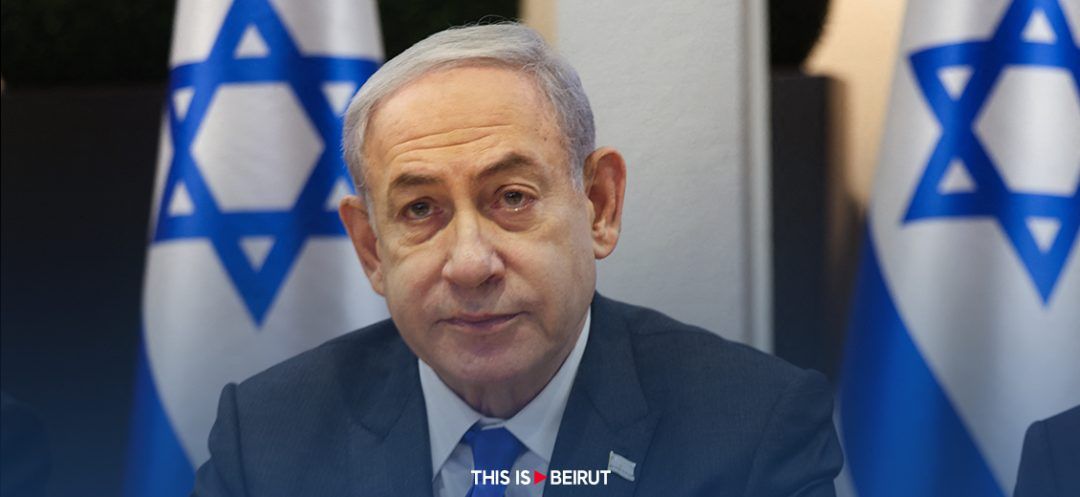- Home
- War in the Middle East
- Israel Agrees to Resume Gaza Ceasefire Talks

©(Menahem KAHANA / POOL / AFP)
Israel has agreed to resume Gaza ceasefire talks on August 15 at the demand of US, Qatari, and Egyptian mediators, Prime Minister Benjamin Netanyahu's office said on Thursday, as regional tensions skyrocket over the war.
Gaza's Hamas-controlled civil defense agency said Israeli bombardment killed more than 18 people in strikes on two schools on Thursday, as Iran accused Israel of wanting to spread war in the Middle East.
After a week-long pause in November, US, Qatari, and Egyptian mediators have endeavored to secure a second truce in the 10-month-old war sparked by Hamas' unprecedented October 7 attack on Israel.
In a joint statement on Thursday, the three countries' leaders invited the warring parties to resume talks on August 15 in Doha or Cairo "to close all remaining gaps and commence implementation of the deal without further delay."
Netanyahu's office said later on Thursday that Israel would send a negotiating team on August 15 "to the agreed place to conclude the details of implementing a deal."
A prospective cessation of hostilities also involving the release of hostages held in Gaza and scaled-up aid deliveries has centered around a phased deal beginning with an initial truce.
Recent discussions have focused on a framework outlined by US President Joe Biden in late May, which he said had been proposed by Israel.
On the ground in Gaza, the Hamas-controlled civil defense agency said Israeli strikes hit Al-Zahra and Abdel Fattah Hamoud schools in Gaza City, killing more than 18 people.
Senior agency official Mohammad al-Mughayyir said 60 people were wounded and more than 40 are still missing.
At least 13 people were killed elsewhere in Gaza, rescuers and medics reported, as the Israeli military issued its latest evacuation order for parts of the main southern city of Khan Yunis.
Officials in the Middle East and beyond have called for calm, with Britain's Minister for International Development, Anneliese Dodds, telling AFP on a visit to Jordan: "We must see a de-escalation."
The United States, which has sent extra warships and jets to the region, has urged both Iran and Israel to avoid an escalation.
France's President Emmanuel Macron spoke on Wednesday with his Iranian counterpart Masoud Pezeshkian and later with Israel's Netanyahu, telling both to "avoid a cycle of reprisals," according to the French presidency.
Netanyahu, who has resisted making an apology for security failures over Israel's worst-ever attack, said in an interview published on Thursday that he was "sorry, deeply, that something like this happened."
"You always look back and you say, 'Could we have done things that would have prevented it?'" Netanyahu told Time magazine.
With AFP
Gaza's Hamas-controlled civil defense agency said Israeli bombardment killed more than 18 people in strikes on two schools on Thursday, as Iran accused Israel of wanting to spread war in the Middle East.
After a week-long pause in November, US, Qatari, and Egyptian mediators have endeavored to secure a second truce in the 10-month-old war sparked by Hamas' unprecedented October 7 attack on Israel.
In a joint statement on Thursday, the three countries' leaders invited the warring parties to resume talks on August 15 in Doha or Cairo "to close all remaining gaps and commence implementation of the deal without further delay."
Netanyahu's office said later on Thursday that Israel would send a negotiating team on August 15 "to the agreed place to conclude the details of implementing a deal."
A prospective cessation of hostilities also involving the release of hostages held in Gaza and scaled-up aid deliveries has centered around a phased deal beginning with an initial truce.
Recent discussions have focused on a framework outlined by US President Joe Biden in late May, which he said had been proposed by Israel.
'Strategic Mistake'
On the ground in Gaza, the Hamas-controlled civil defense agency said Israeli strikes hit Al-Zahra and Abdel Fattah Hamoud schools in Gaza City, killing more than 18 people.
Senior agency official Mohammad al-Mughayyir said 60 people were wounded and more than 40 are still missing.
At least 13 people were killed elsewhere in Gaza, rescuers and medics reported, as the Israeli military issued its latest evacuation order for parts of the main southern city of Khan Yunis.
'Cycle of Reprisals'
Officials in the Middle East and beyond have called for calm, with Britain's Minister for International Development, Anneliese Dodds, telling AFP on a visit to Jordan: "We must see a de-escalation."
The United States, which has sent extra warships and jets to the region, has urged both Iran and Israel to avoid an escalation.
France's President Emmanuel Macron spoke on Wednesday with his Iranian counterpart Masoud Pezeshkian and later with Israel's Netanyahu, telling both to "avoid a cycle of reprisals," according to the French presidency.
Israel PM 'Sorry'
Netanyahu, who has resisted making an apology for security failures over Israel's worst-ever attack, said in an interview published on Thursday that he was "sorry, deeply, that something like this happened."
"You always look back and you say, 'Could we have done things that would have prevented it?'" Netanyahu told Time magazine.
With AFP
Read more



Comments